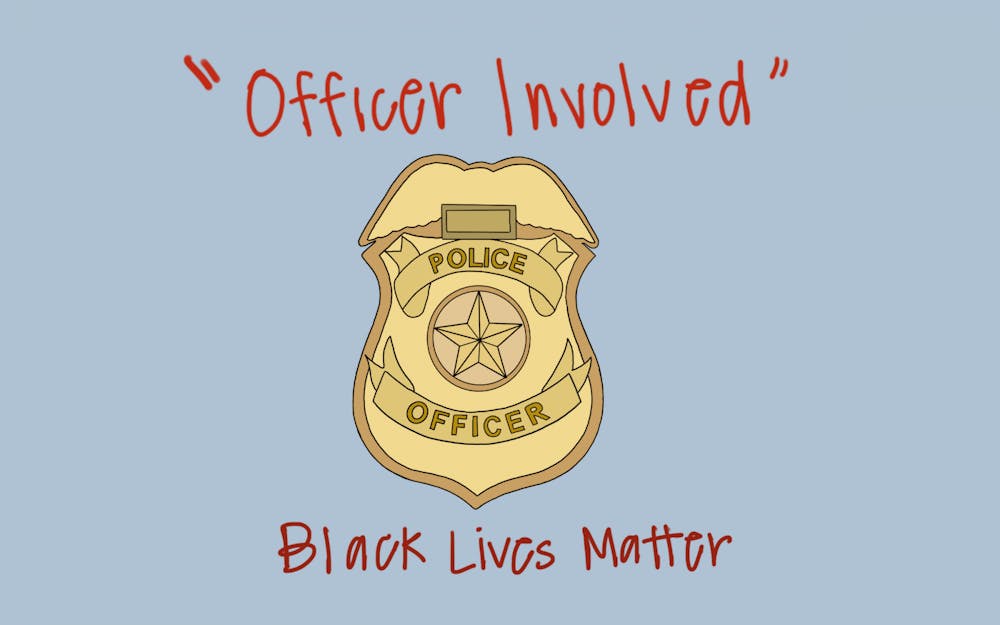In August 2020, the Associated Press Stylebook said reporters should not use “officer-involved” for shootings or other incidents involving the police. It urged reports to be specific when explaining events involving police.
The AP’s Stylebook is the predominant guide dictating what language journalists should use in stories.
AP Stylebook said the term “officer-involved” was vague and that reporters should be specific about what happened.
More people in America, especially today, are likely to be influenced by news media, according to Pew Research Center. In 2020, only 32% of Americans believed the media was influential. However, in 2021 nearly half of Americans said the media was growing in influence.
According to HuffPost, media outlets don’t appear to be following this guideline by continuously using vague and neutral language to describe police violence.
For instance, a FOX59 article said there was a “shooting involving a police officer.” However, the police officer was the only one who fired a shot in the incident.
Failing to name police violence not only negates the harm against the victims but also protects the system which continuously shows its disregard for Black and brown lives.
Imagine being harassed by a police officer while simply minding your business. The officer continues the harassment physically leaving you seriously injured to the point of hospitalization. A week after your harassment, you see an article calling your harm an “officer-involved” incident.
There’s the opportunity for reporters to call out this injustice and shed light on the ugly truth of policing, but instead, they shield the truth. They erase the victim’s entire story by naming the harm as an “officer-involved” incident.
Can you imagine how painful this would make someone feel?
Words like misunderstanding, disagreement, altercation, and dispute appear to be “neutral” but inaccurately describe these events.
The reporter’s intention may not be erasing what happened. They may just be attempting to be “neutral.” But unfortunately, there are no neutral stances in matters of police violence.
Police violence isn’t a matter of personal opinions or feelings. It is a human rights matter and reporters need to approach it as such.
This “neutral” stance allows police to walk away with minimal accountability. There have been many instances where police officers were not charged, even when they committed harm.
These cases of police violence aren’t isolated events. They are systemic issues which affect the entire policing system.
Instead of the public viewing these “officer-involved” incidents as continuous abuse of power, the language can allow one to think these are just isolated events and not a systemic issue. Media outlets need to stop using vague and non-specific words to describe police violence. It does nothing to help with the fight against police brutality and the fight for human rights.




